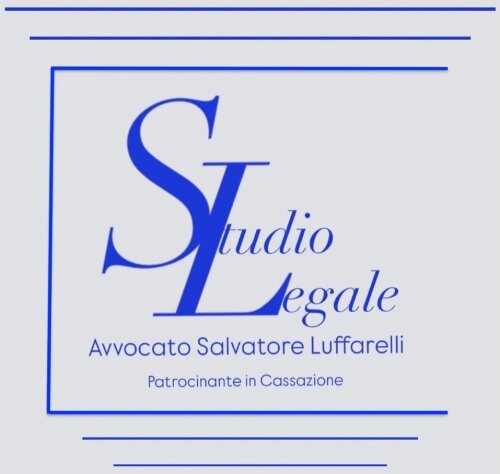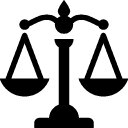Best Animal Law Lawyers in Italy
Share your needs with us, get contacted by law firms.
Free. Takes 2 min.
Or refine your search by selecting a city:
List of the best lawyers in Italy
About Animal Law in Italy
Animal Law in Italy is a branch of law that focuses on the rights and welfare of animals, incorporating legislation designed to protect animals from abuse, neglect, and exploitation. Italy has a comprehensive legal framework aimed at safeguarding both domestic and wild animals. The legal provisions are influenced by both national legislation and European Union regulations, ensuring that animals are treated humanely and ethically. Animal rights have gained increased attention over recent years, with the Italian legal system adopting stricter measures and penalties for offenders.
Why You May Need a Lawyer
There are several common situations where individuals or organizations may seek legal assistance in the area of Animal Law. These include cases of animal cruelty or abuse, disputes over pet ownership, issues related to noise and pet disturbances, legal complications arising from breeding, buying, or selling animals, and situations involving endangered or protected species. Furthermore, businesses involved in veterinary services, animal products, and agriculture might require specialized legal counsel to ensure compliance with Italian laws and regulations.
Local Laws Overview
Italy's local laws encompass a wide range of issues relevant to Animal Law. Key aspects include:
- Protection against cruelty and exploitation under the Penal Code, which criminalizes mistreatment and provides penalties for offenders.
- Regulations overseeing the welfare of animals in zoos, circuses, and other recreational facilities, ensuring they are kept in appropriate conditions.
- Guidelines for pet ownership, focusing on vaccination, microchipping, and care obligations for pet owners.
- Conservation laws protecting endangered species and their natural habitats.
- Sanctions and fines for illegal hunting and trafficking in wildlife.
Frequently Asked Questions
What is the penalty for animal cruelty in Italy?
Italy has strict penalties for animal cruelty, including fines and imprisonment varying with the severity of the offense. The Penal Code stipulates sanctions that can reach several years of imprisonment for severe abuse cases.
Are there specific regulations for owning exotic pets?
Yes, owning exotic pets is regulated. Prospective owners need to comply with specific legal requirements, which may include obtaining permits and ensuring proper living conditions for the pets.
What should I do if I witness animal abuse?
If you witness animal abuse, it is crucial to report the incident to the local authorities or law enforcement agencies. Providing evidence, such as photos or videos, can aid investigations.
How does Italy regulate animal testing?
Animal testing is subject to stringent regulations in Italy, with laws requiring alternatives whenever possible and ensuring humane treatment of animals used in research.
Can tenants own pets in rental properties?
This depends on the lease agreement. While there is no nationwide law prohibiting pets in rental properties, individual agreements may include specific clauses either allowing or restricting pet ownership.
How are stray animals addressed by Italian law?
Stray animals are protected under Italian law, with municipalities responsible for their welfare and management. Programs for sterilization and adoption initiatives are common.
What legal responsibilities do pet owners have?
Pet owners in Italy are legally obligated to provide adequate care, including food, shelter, and medical treatment, and must comply with laws mandating microchipping and vaccinations.
Are there noise regulations for pets?
Yes, local ordinances often address noise disturbances caused by pets, particularly barking dogs, and can impose fines on owners for violations.
Is pet travel regulated within the EU?
Traveling with pets within the EU, including Italy, is regulated and generally requires a pet passport, microchip, and vaccinations, particularly against rabies.
What are the rules for breeding animals?
Breeding is regulated to prevent exploitation and ensure animal welfare, with breeders needing to comply with specific legal guidelines regarding conditions and care.
Additional Resources
Below are resources that can provide additional guidance and support:
- The Italian Ministry of Health offers detailed information regarding animal welfare regulations.
- Legambiente is an Italian environmental organization advocating for animal and environmental issues.
- The Italian National Institute for Wildlife provides research and support for wildlife conservation.
- Local animal shelters and non-profit organizations frequently offer advice and support for legal questions regarding pets and animal rights.
Next Steps
If you need legal assistance in the field of Animal Law in Italy, consider the following steps:
- Consult with a lawyer specializing in Animal Law or a related field. They can provide expert guidance tailored to your situation.
- Gather and organize any relevant documentation, evidence, or records related to your case to facilitate clear communication with your legal counsel.
- Explore alternative dispute resolution options, such as mediation, which can sometimes offer a faster, cost-effective solution to legal issues.
- Stay informed by regularly reviewing updates and changes in Animal Law regulations to ensure ongoing compliance and awareness.
Lawzana helps you find the best lawyers and law firms in Italy through a curated and pre-screened list of qualified legal professionals. Our platform offers rankings and detailed profiles of attorneys and law firms, allowing you to compare based on practice areas, including Animal Law, experience, and client feedback.
Each profile includes a description of the firm's areas of practice, client reviews, team members and partners, year of establishment, spoken languages, office locations, contact information, social media presence, and any published articles or resources. Most firms on our platform speak English and are experienced in both local and international legal matters.
Get a quote from top-rated law firms in Italy — quickly, securely, and without unnecessary hassle.
Disclaimer:
The information provided on this page is for general informational purposes only and does not constitute legal advice. While we strive to ensure the accuracy and relevance of the content, legal information may change over time, and interpretations of the law can vary. You should always consult with a qualified legal professional for advice specific to your situation.
We disclaim all liability for actions taken or not taken based on the content of this page. If you believe any information is incorrect or outdated, please contact us, and we will review and update it where appropriate.
Browse animal law law firms by city in Italy
Refine your search by selecting a city.














